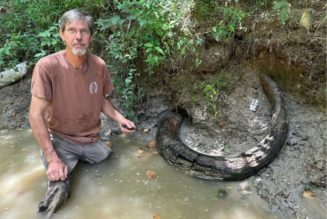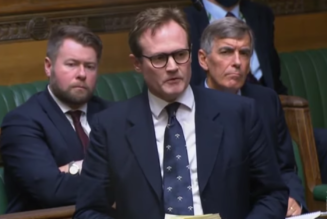
(Images by Pixabay/CC0. Composition by Register Staff.)
The director of the Pontifical Institute for Foreign Missions’ AsiaNews press agency says the reported cyberattacks are part of the Chinese Communist government’s efforts to ‘control the Vatican.’
Reports that Chinese hackers had infiltrated the computer networks of the Vatican, the diocese of Hong Kong, and those of the Pontifical Institute for Foreign Missions (PIME) in Milan over the past three months, came as no surprise to Father Bernardo Cervellera and his colleagues at AsiaNews.
Father Cervellera, the director of the Rome-based AsiaNews which is the PIME’s official press agency, told the Register July 29 that although their news service was not directly affected by the attacks, he and his colleagues already knew that AsiaNews “is controlled, followed and read by the Chinese Communist Party.”
“In the past they have tried disrupt our service, and criticize it publicly,” he continued. “Nowadays AsiaNews is blocked in China, although our news is widely spread in the country through social networks and proxy servers.”
Father Cervellera said the webmasters for AsiaNews’ website, which has its own special server for security reasons, had noticed some anonymous attacks in the past few weeks that had failed.
Various news outlets reported yesterday that Recorded Future, a firm based in Somerville, Massachusetts, had detected cyberattacks on computer networks in the Vatican, PIME and the diocese of Hong Kong since May. The details were published in a 20-page report titled “Chinese State-Sponsored Group ‘RedDelta’ Targets the Vatican and Catholic Organizations.”
The firm said it believed that the recent cyberattacks, carried out by a state-backed group called RedDelta, were also an attempt to steal secrets and spy on the Vatican during talks over a controversial and secret provisional agreement signed by the Holy See and Beijing and which comes up for renewal in September. The agreement, whose contents have yet to be made public since it was signed in 2018, is believed to concern the appointment of bishops — for many years an obstacle to improved relations.
The news also comes as the Chinese Communist Party wages a campaign to tighten its grip on all religious groups, in what Chinese government leaders have referred to as an effort to “Sinicize religions” in the country. Beijing officially recognizes five religions but sees them all as undermining the CCP’s control and threatening the country’s national security.
The details of the attacks also emerged in the light of resistance to Beijing’s new national security law imposed on Hong Kong. Recorded Future said the targeting of the Hong Kong diocese would likely be a “valuable intelligence source for both monitoring the diocese’s position on Hong Kong’s pro-democracy movement and its relations with the Vatican.” Many of protesters against the law, and a failed extradition bill last year, were Catholics.
The Chinese hackers planted malware, also known as computer viruses, by luring users to open documents with a counterfeit condolence message dated May 14, 2020, addressed to the head of the Hong Kong Study Mission and signed by Cardinal Pietro Parolin, the Vatican Secretary of State, and the sostituto, Archbishop Edgar Penã Parra. The Study Mission, which acts as an informal nunciature to China (the Holy See and Beijing have not had formal diplomatic ties since 1951), was also attacked.
Once malware is planted on a computer, passwords and contacts can be stolen, data can be deleted, locations captured, or the user can be secretly recorded.
PIME’s mail server was hacked in June, according to PIME’s general secretary Father Marco Villa, who said the infiltration had affected mail servers “for weeks” whereas previous attacks had only lasted very short periods of time.
The Vatican has not commented on the attacks but Father Cervellera said in an AsiaNews article that he believed it would reinforce the view that China is an unreliable dialogue partner.
In his comments to the Register, Father Cervellera said many countries spy on other nations so it “would be obvious that the China regime spies on us (AsiaNews, PIME, the Vatican).”
But he stressed that the Chinese government “spies on all of its population as it is sick with a paranoia of control. They live in the fear of danger if something is not controlled by them.”
The provisional agreement, he added, was signed by China “just because Beijing wants to control the Catholic Church even more.”
It is therefore obvious, he concluded, “that in preparing the possible renewal of that agreement, they even try to control the Vatican.”









